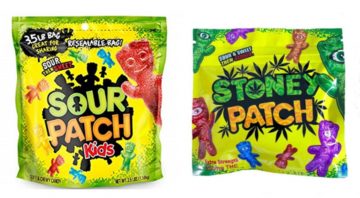Last week’s lecture discussion on passing off reminded me of the issue on cannabis products resembling candies. I was reminded of its seriousness, especially during Halloween season when children collected trick-or-treat candies, and found this article.

The article introduces the trademark lawsuit by the maker of Sour Patch Kids, Mondelëz Canada Inc. (“MCI”), against Stoney Patch, a copycat cannabis-infused edibles. In this passing-off action, MCI alleges that Stoney Patch’s company name, branding, and packaging are confusingly similar to that of Sour Patch Kids. MCI says that Stoney Patch diminishes the goodwill and reputation of MCI, causes consumer confusion, and leads to irreparable harm to MCI’s trademark rights and its reputation as a family-friendly snacks and candies maker. There have also been serious concerns about how Stoney Patch’s packaging and labeling were targeted to children and that there had even been some children who were hospitalized after eating THC-infused gummies in the Stoney Patch packaging. Not much is known about Stoney Patch nor its anonymous makers.
This case not only raised important trademark issues, but it was also important from the view of a public health danger. I am curious to know the result of the lawsuit and whether MCI was granted an injunction that prohibited Stoney Patch from being sold. I look forward to learning more about trademarks in the upcoming lectures.
 Communications Law
Communications Law
I love sour patch kids! I think we have a strong passing-off action here but in terms of consumer confusion, I would personally not be confused by stoney patch. It’s very similar but those cyclops stoney kids are pretty out there. For the children though, this would be another story.
The consumer confusion question is interesting. If I was in a hurry (or already “impaired” if you want to go the ironic route), then I might well be confused. Even more interesting is the harm to the Sour Patch brand and the claim under s. 22 of the Trademarks Act. The courts really try to avoid using that section which says “22 (1) No person shall use a trademark registered by another person in a manner that is likely to have the effect of depreciating the value of the goodwill attaching thereto”. Can they avoid it here, and if so, how?
Jon